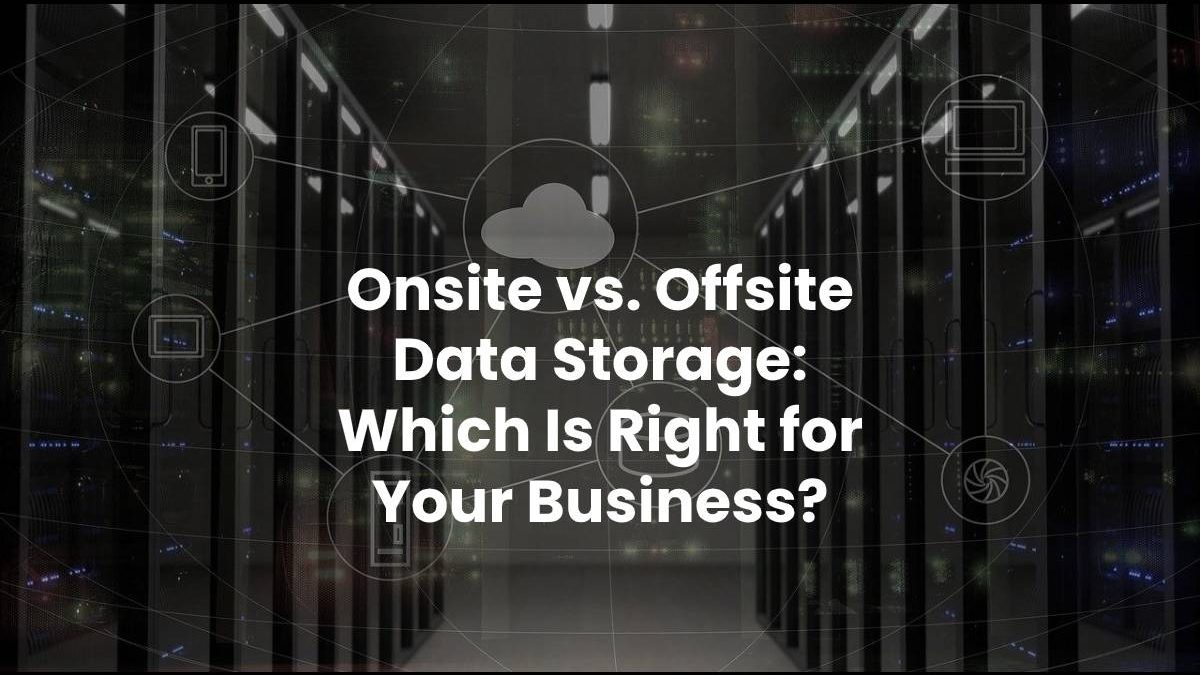Onsite vs Offsite Data Storage
Data loss can cause a massive problem for a business. According to a study by the University of Texas, 94% of companies do not survive after a disastrous data loss. The research also shows that 43% of these companies fail to reopen while 51% go out of business within two years.
Since you cannot afford to lose your data, it may be a good idea to consider using an onsite or offsite storage system. However, before you make a choice, get to know more about the storage solutions available for you so that you can make the right choice for your business.
Let us take a closer look at these storage solutions:
Table of Contents
Offsite Storage
This solution allows you to store your hardware and data at a location away from your business. With this solution, you can choose to use cloud storage solutions or collocation.
Colocation is a cheaper and reliable alternative to cloud storage. Get to know more here about colocation and see if it is ideal for your business.
Pros
Using an offsite storage solution means that you will not need to have a physical space to back up your data. Some of the benefits that this solution offers include:
- Scalability
- No office space required
- Manage storage services
- Faster back up because multiple servers are used
- Saves cost
- It is secure
- Fast deployment
- Reliability
Cons
Despite the advantages, there are a few reasons why this option may be a bad idea. They include:
- You have to adhere to compliance and governance rules
- How fast you retrieve data will depend on the speed of your internet
- It is shared
Know more about this system from your service provider to determine if it is a good fit for your business.
Onsite Storage
This means having your server room or storage solution right within the walls of your business. Your internal systems will have direct access to the stored data mostly over an internal LAN.
Pros
Some of the benefits that this solution offers include:
- It reduces the load on your network
- Less costly
- Hard drives are easy to install and manage
- You have complete control of the data
- No third-party access
Cons
Here are the disadvantages of the onsite storage method.
- Data is vulnerable to fire, theft, natural disasters, and more
- You will have to monitor the dedicated data management team
- Slow deployment process
- Expensive to manage and maintain
- Requires a lot of support
- A data breach is a significant risk
When designing IT systems, choosing where to backup or store your data is very important. Online storage makes you fully responsible for software patches, security updates, and firmware upgrades. This means you may have to employ a team of experts or outsource one to ensure that your system runs as it should.
Online vs. Offsite Storage: Which System Should You Choose?
The solution you choose should be able to protect your data and business fully.
Remember, with online storage; you have to think about the future expansion of your business. This is because you will need to buy and implement the expansion trays. On the other hand, offsite storage offers you a lifetime plan and will keep your data safer.
For tips on technology, gadgets, and other news, feel free to visit our website.

